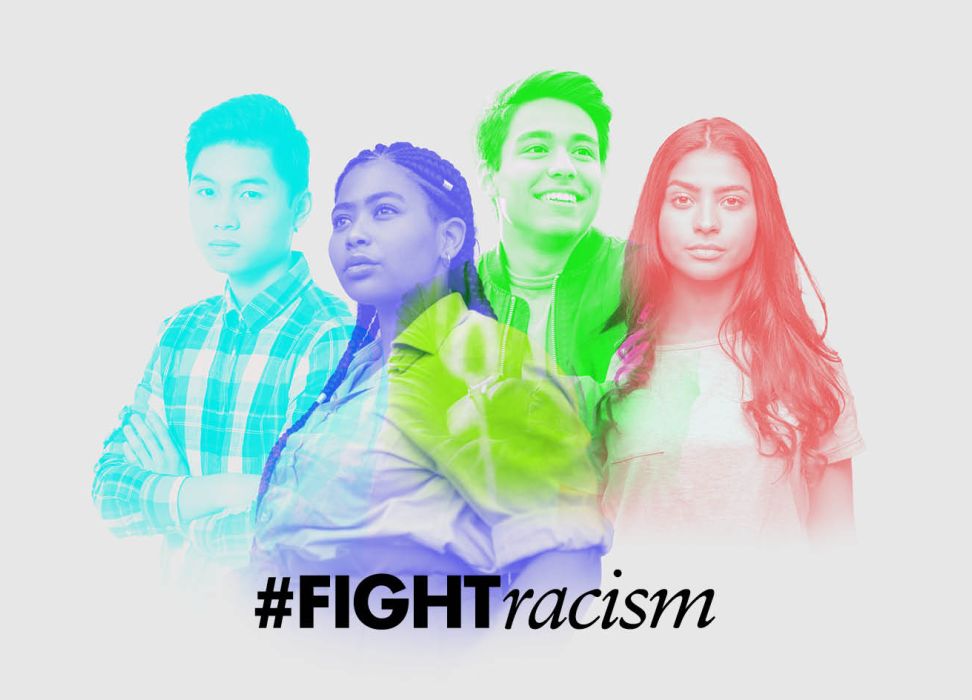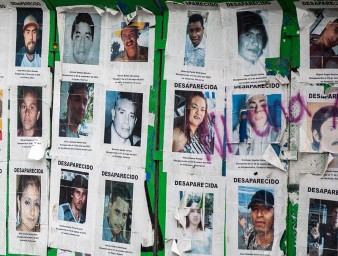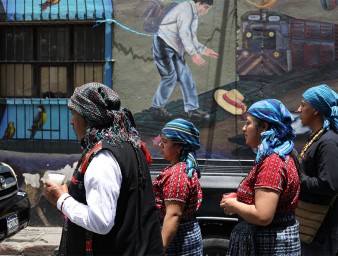Youth are standing up against racism

In the spring and summer of 2020, young people massively showed their support to the movement at the Black Lives Matter marches, which drew millions of demonstrators worldwide. On the streets, groundswells of youth - mostly teens and twenty-somethings - came together to protest against racial injustice. On social media, they mobilized participation, calling on their peers to speak out, and stand up for the equal rights of all.
Their activism was all the more remarkable in the context of the COVID-19 pandemic, which saw restrictions on public gatherings in many countries. As the virus began to spread in early 2020, a parallel pandemic was unleashed - of hatred, violence and fear against certain ethnic groups and nationalities. It quickly became clear that stark inequities, sometimes rooted in racism, had subjected people of African descent, indigenous peoples and people of colour to a significantly higher risk of infection and death.
Many of the young people heavily impacted by the COVID-19 pandemic, including those from minority backgrounds, are now grappling with an increase in racial discrimination, in addition to severe disruptions to their education; diminished employment prospects; and limited ability to participate in public life, which stymies their individual and social empowerment.
This year, like every year as we mark the International Day for the Elimination of Racial Discrimination on 21 March, we invite everyone, to join the youth around the globe who bring us closer to a culture of tolerance, equality and anti-discrimination by standing up against racial prejudice and intolerance.
Young people should be empowered to realise their rights to freedom of expression, assembly and access to information for they too have the right to participate in the life of the community.
Young people, including those from minority backgrounds who may face discrimination, deserve stronger support in securing decent work and strengthening their job prospects.
Young people have the right to learn about human rights and about human rights tools that can be used to fight against oppression, racism and discrimination.
We call on all decision-makers to empower these young people by giving them a seat at the table at the decision-making table.
Each year, the world commemorates the International Day for the Elimination of Racial Discrimination on 21 March, the day the police in Sharpeville, South Africa, opened fire and killed 69 people at a peaceful demonstration against apartheid "pass laws" in 1960. The theme for this year’s commemoration is “Youth standing up against racism.”



